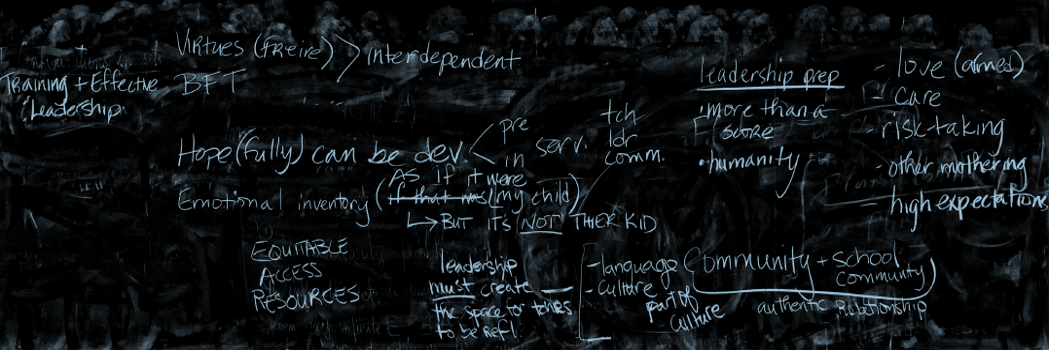In the first paragraphs of Douglass-Hosford’s Voices in Urban Ed Metro Center piece, she discusses whose integration, school integration is and how in the process reformers, policy elites, social justice advocates, and allies all “wield disproportionate control over the education of children of color and the options made available to their parents and in their communities”. Continuing to her dissection of the vision problem, I kept thinking back to a Tiktok I saw recently by a Black woman who was talking about how Black liberation would be a lot easier if allies were to just die. This point emphasizes the truth that Black people can and will liberate themselves; that Black liberation is not contingent on the need for allies or non-Black people, and to deny this truth demeans the self-determination and empowerment of Black people (and, thus, perpetuates Anti-Blackness). Douglass-Hosford talks about integration vs de-segregation, where integration leads to the demise of Black institutions and ultimately Black folks’ self-determined realities. In her EducationWeek article, she writes “Those closest to the problem are closest to the solution”, highlighting that Black liberational schooling in the United States will NOT be a reality without centering Black voices and enacting Black imaginations.
As a non-Black person, I am constantly examining how I can enact actively, meaningfully, and purposeful solidarity with the movement of Black liberation. Even in the recognition how my communal oppression within white supremacy as a Bengali woman is still based in Anti-Blackness. This may not be directly related, but I have been considering the unfortunate reality that systemically POC solidarity does not exist (which sustains white supremacy)—and the most recent proof being the passing of the anti-Asian hate crime bill with BIPARTISAN support. (like what?!). And on top of that, the bill directly gives MORE power to the police in being the ones to enforce the bill (i.e., NYPD Anti-Asian Hate Crime Task force). Regardless, I am angry about this on all levels in how Asian Americans have a) agreed to a bill that is not only complicit but further sanctions the oppression of Black people through policing and b) clinging to whiteness as a means of “liberation” or repairing harm. Anyways, all of this floats in my brain as I read about how common it is in education, and blatantly in educational policy, for Black voices to exist in the margins of imagining and creating just, humane, critically caring schools FOR Black children and youth. I commit to listening, unlearning, learning, calling folks out in my spaces and communities, letting myself get called out, shutting up sometimes, and staying true to and centering Black folk’s intentions, goals, and desires. But are multiple truths true here? Can what DuBois (1935) determined also be true? Is the only way all Black children can receive a just, humane, critically caring education in this society to be that Black children need separate schools?
Looking forward to class tomorrow!




Hey Sohini,
Reading your post makes me think of the “Oakland Community school” started by the former Black Panther Party!
Dropping by to be a highlighter on your thoughts about racial solidarity!
To respond to your closing thought, DuBois never made an absolute declaration that separate schools are the answer. DuBois understands that caring relationships are essential between teacher and student. His conclusion that separate schools are the answer rests on the recognition that White people maintain deep racial animosity towards Black people.
The moral development of racist people is a necessary condition for integrated schools to be safe places for Black children to receive a quality education. So whether it is true that separate schools are the only way rests wholly on whether or not racism can be extracted from a person’s world view and modi operandi.
http://nationalhumanitiescenter.org/tserve/freedom/1917beyond/essays/does-the-negro-need-seperate-schools.pdf